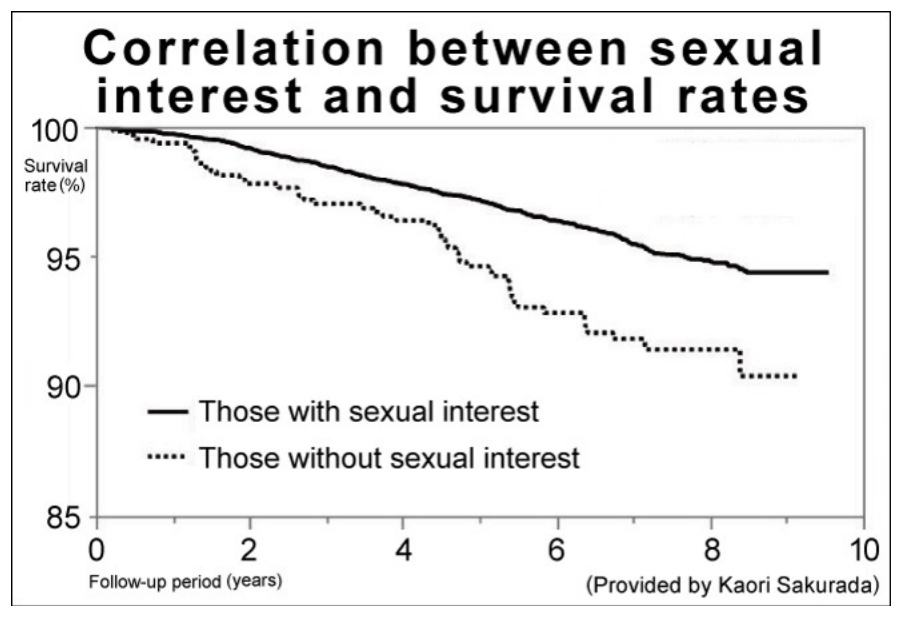Older men with no sexual interest in women at risk of earlier death

–Middle-aged and older men with zero sexual interest in women are prone to shorter lifespans, a study shows.
The finding was based on a follow-up study of nearly 20,000 residents of Yamagata Prefecture.
The research team was led by Kaori Sakurada, a professor who specializes in brain tumors at the Yamagata University Faculty of Medicine’s School of Nursing here.
Sakurada said the results could help to develop methods to reduce the risk of earlier death.
The survey methods will be reviewed for future study because the latest results did not take sexual minorities into account, Sakurada added.
The research results were published last December in Plos One, a leading U.S. online science journal founded in 2006 that issues peer-reviewed articles in open access form. The article ran under the headline, “Association between lack of sexual interest and all-cause mortality in a Japanese general population.”
The study covered prefectural residents aged 40 or older who underwent annual health checkups in the seven cities of Kaminoyama, Yamagata, Higashine, Sakata, Tendo, Yonezawa and Sagae. The subjects were studied for a maximum of nine years from 2009, with a median follow-up period of 7.1 years.
The subjects were asked if they had any interest in the opposite sex. They were also questioned about their medical history, use of medication, how often they laughed and mental stress levels.
The researchers studied the correlation between those factors and the risk of death.
They found that 8.3 percent of the roughly 7,700 male subjects and 16.1 percent of the 11,400 or so female subjects were not interested in the opposite sex. The team said 503 test subjects, 356 men and 147 women, died during the follow-up study.
Analysis of the data showed that 9.6 percent of the men who said they had no interest in the opposite sex died during the nine years. The death rate among men who said they were still sexually interested in women was 5.6 percent.
The researchers concluded the difference shows a significantly higher risk of death, even when discounting other factors, such as age and chronic illnesses.
The data on women indicated no correlation between their sexual interest and risk of death, the team members added.
“Taking interest in the people around you, including the opposite sex, and interacting with them could help you remain mentally sound and have something to live for,” Sakurada said. “Communicating with those of the opposite sex, however old you are, could help you live longer.”
While the latest study only covered residents of Yamagata Prefecture, Sakurada speculated that the same tendency holds true for the Japanese population at large.
“There are unlikely to be major regional differences in sexual interest,” she said. “And the large scale of our survey ensures it does not show up the characteristics of a particular group.”
Sakurada said she is currently doing research on the correlation between good health and keeping pets.
“Keys to longevity are of immense public interest,” she said. “We will continue analyzing the vast survey data we have collected.”




